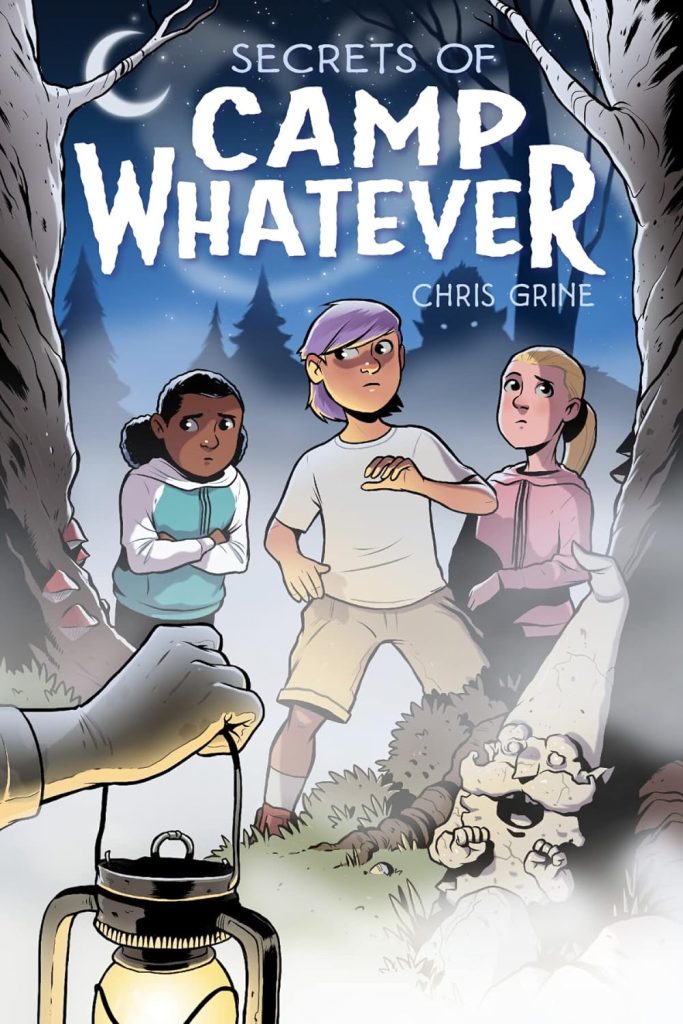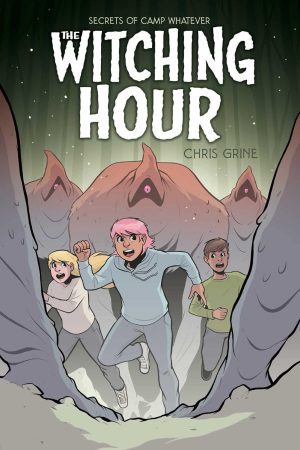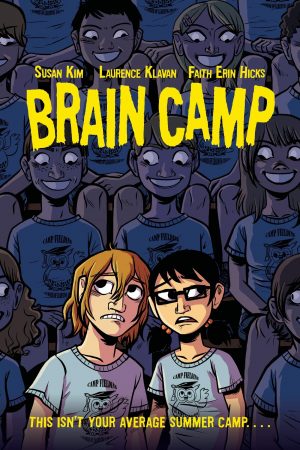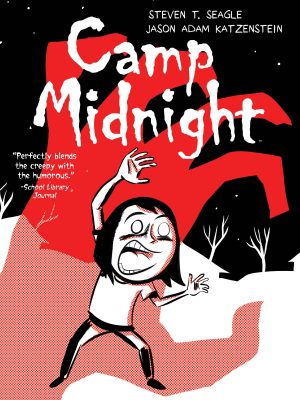Review by Ian Keogh
Willow is a reluctant attendee at summer camp despite her father’s recollections of great times back in the day on a lake island. However, he rather spoils the endorsement by subsequently admitting that when he was there a child went missing and was never found. This follows folk at the local diner with warnings about supernatural occurrences including, but not limited to, witches, trolls and vampires. Perhaps Willow would have been better off not turning her hearing aid on.
On arrival during a foggy day, Camp Whatever, the name explained in-story, lives up to the creepy introduction, and while many kids feel homesick on their first day, Willow has more cause than most. Her camp-mates though, are better at making the best of less than ideal circumstances.
Chris Grine sets a chilly atmosphere extremely well amid children who have realistic concerns. His adults are exaggerated for comedy purposes, especially new camp director Mr. Tooter, formerly a big game hunter, which might establish a fearless personality, but is possibly not the best career to punt to children. Grine draws very appealing children, wide-eyed and given appropriate expressions, and friendly gnomes, but the art isn’t varied enough. It’s a rare panel when the cast are portrayed as anything other than head and shoulders, and the lack of visual variety diminishes the possibilities, especially when the cast explore the spooky island.
Like most other children, Willow settles into camp, actually proving more adventurous than most of her companions, which is why she explores and comes across strange people. That spirit of exploration reveals secrets and strangeness, but it’s very much to the template of Harry Potter, with exotic creatures replacing magic. Neither does Grine greatly attempt to avoid the comparison, which extends to some island residents, although mischievous twins with no boundaries and distinctive hairstyles are closer to Jedward. Willow’s deafness, however, is well used, not just ticking an inclusion box. On one level her courage and intelligence are empowering for any deaf readers who might also be ridiculed by cruel children, and in-story there’s a greater purpose.
Some mysteries are perpetuated well, and others may be obvious even to the younger readers at whom this is aimed, but it’s only really toward the end that Secrets of Camp Whatever comes to life. There are some good answers to what’s been going on, and despite misgivings, Grine’s efforts have found an audience as there have been two further visits to Camp Whatever, with The Doors to Nowhere next. They’re an improvement.





